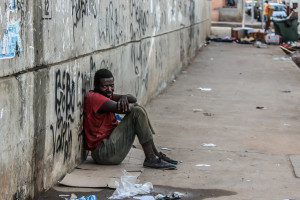
India joins WHO’s Executive Board
Geneva: India along with Colombia, Guinea Bissau, Madagascar, Malaysia, Peru, Tonga and Tunisia, attended the 150th session of the Executive Board of the World Health Organization (WHO), as its new members, here today.
The WHO Executive Board meeting took place at a time when on average over 100 new cases of COVID-19 are being reported every three seconds, and the pandemic is claiming a life every 12 seconds.
Since Omicron was first identified just nine weeks ago, more than 80 million cases have been reported to WHO – more than were reported in the whole of 2020.
WHO today warned that globally the conditions are ideal for more variants to emerge, and to change the course of the pandemic, it was crucial to change the conditions that are driving it.
“There are different scenarios for how the pandemic could play out, and how the acute phase could end – but it is dangerous to assume that Omicron will be the last variant, or that we are in the endgame,” WHO Director-General Dr. Tedros Adhanom Ghebreyesus told the Executive Board today.
The D-G pointed out that so far, although the explosion in cases has not been matched by a surge in deaths, deaths are increasing in all regions, especially in Africa, the region with the least access to vaccines.
“85% of the population of Africa is yet to receive a single dose of vaccine. How can this be acceptable to any of us?” Dr. Ghebreyesus told the Executive Board, and ruled out ending the emergency phase of the pandemic “unless we bridge this gap.”
WHO today acknowledged that COVID was here to stay in the foreseeable future, and that “we will need to learn to manage it through a sustained and integrated system for acute respiratory diseases, which will provide a platform for preparedness for future pandemics”.
Dr. Ghebreyesus though remarked that learning to live with COVID could not mean giving the virus “a free ride”.
“It cannot mean that we accept almost 50 thousand deaths a week, from a preventable and treatable disease. It cannot mean that we accept an unacceptable burden on our health systems, when every day, exhausted health workers go once again to the front line. It cannot mean that we ignore the consequences of long COVID, which we don’t yet fully understand. It cannot mean that we gamble on a virus whose evolution we cannot control, nor predict,” he said.
The WHO Director-General today outlined five priorities for world and for WHO going forward:
- Our commitment in the coming year – and in the coming five years – is to dramatically strengthen our ability to deliver results in countries.
- First, to support countries to make an urgent paradigm shift towards promoting health and well-being and preventing disease by addressing its root causes. The pandemic has demonstrated that we must elevate protecting and promoting health as top priority, with significantly increased investment in countries, and at WHO.
- The second priority is to support a radical reorientation of health systems towards primary health care, as the foundation of universal health coverage. That means restoring, expanding and sustaining access to essential health services, especially for health promotion and disease prevention, and reducing out-of-pocket spending
- The third priority is to urgently strengthen the systems and tools for epidemic and pandemic preparedness and response at all levels, underpinned by strong governance and financing to ignite and sustain those efforts, connected and coordinated globally by WHO.
- The fourth priority is to harness the power of science, research innovation, data and digital technologies as critical enablers of the other priorities – for health promotion and disease prevention, for early diagnosis and case management, and for the prevention, early detection, and rapid response to epidemics and pandemics.
- The fifth priority is to urgently strengthen WHO as the leading and directing authority on global health, at the centre of the global health architecture.
– global bihari bureau





